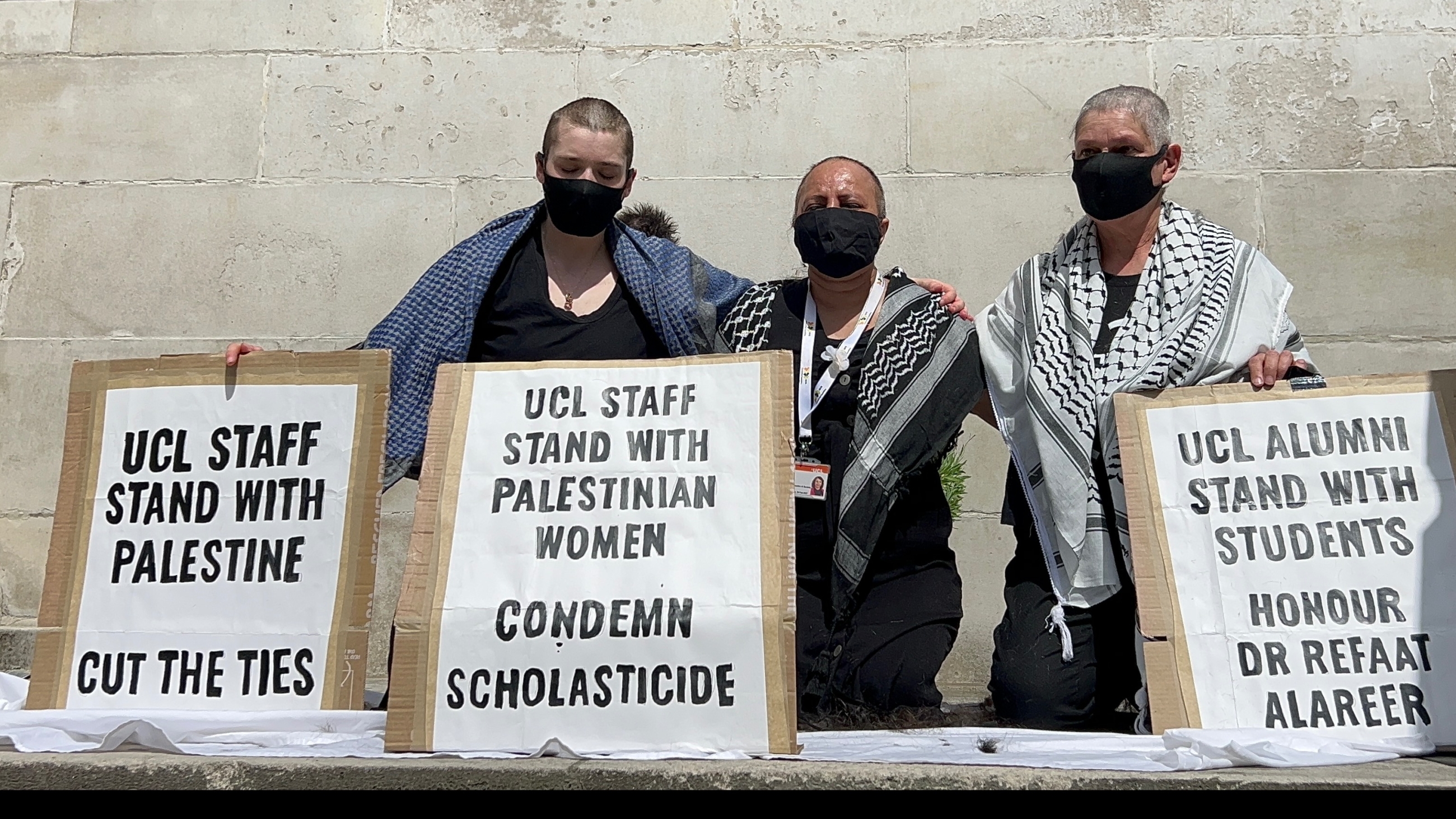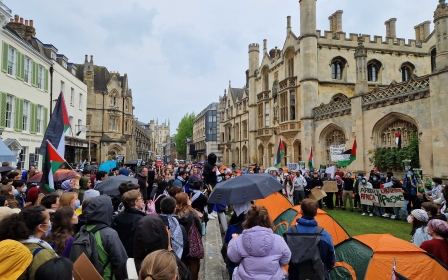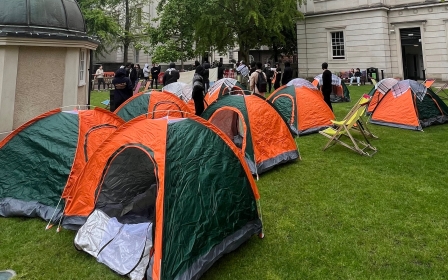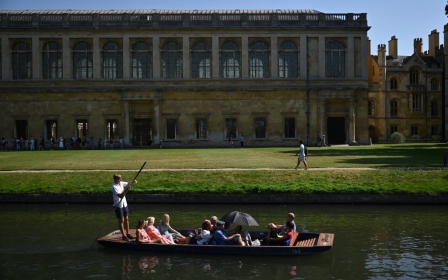UK: Female staff at UCL shave their heads to pressure university to divest from Israel

Female staff at University College London are shaving the hair off their heads to pressure the institution to divest from Israel, joining hundreds of academics calling on the university to divest and boycott Israeli universities.
Standing in front of students and staff, two female staff members from UCL and an alumna shaved their heads on Wednesday in support of Palestinian women in Gaza forced to do the same because of no access to water.
May, a technician at UCL, was the first woman to shave her head in front of a crowd of academics and staff gathered to commemorate Nakba Day.
Speaking in front of hundreds of people, May, who declined to give her full name, said she shaved her hair off to highlight the “dehumanisation endured by Palestinian women in Gaza” and to pressure UCL to divest from companies that profit from Israel’s war in Gaza.
“A woman forced to shave her head would be considered dehumanising in almost any circumstance. But sadly, it is a single tiny drop in the ocean of the unspeakable dehumanisation, violence and cruelty inflicted on the Palestine people in front of our very eyes,” May told Middle East Eye.
New MEE newsletter: Jerusalem Dispatch
Sign up to get the latest insights and analysis on Israel-Palestine, alongside Turkey Unpacked and other MEE newsletters
“UCL is complicit by continuing to have shares in arms companies and bank with Barclays who has increased their investment in companies making money from this genocide.”
Elle, a lecturer at UCL, also shaved her hair off on Wednesday to demand that the university end its research partnerships with Israeli universities.
“I'm here because I have an ethical obligation that my work doesn't contribute to denying them their dignity, knowledge, history, humanity, or even their existence,” said Elle, who declined to give her surname. “I am here because our liberation is bound up with each other.”
Elle added that her protest was inspired by other women who shaved their heads outside parliament after reports emerged of Palestinian women doing the same to avoid contracting scalp illnesses, as they are unable to wash their hair due to continued displacement in Gaza.
Their protest comes as hundreds of academic staff at UCL joined calls for an academic boycott of Israeli universities while protest encampments continue to grow on university campuses across Britain.
Earlier this week, encampments emerged at King’s College London, the London School of Economics, and Queen Mary University in East London.
UCL declined to comment on the protest when contacted by Middle East Eye.
Cambridge encampment
A pro-Palestine student campaign at the University of Cambridge has escalated, with students occupying the lawn outside the university's central management building on Wednesday morning.
The campaign began on 6 May, when around 100 students gathered on the lawn outside King's College, one of Cambridge's constituent colleges, where they erected tents and demanded the university commit to divesting from companies involved in Israel's war on Gaza.
The organisers told Middle East Eye previously they are demanding that the university discloses all of its relationships with companies and institutions "complicit in the ongoing ethnic cleansing of Palestine".
They said they want the university to end all such relationships, support Palestinian students and academics, and commit to protecting academic freedom.
Now the campaign has moved into a new phase. On early Wednesday morning, the protesters set up a new encampment on the lawn of Cambridge's iconic Senate House after climbing over its surrounding fences.
The building, which dates back to the 1720s, is the ceremonial centre of the university. One graduation ceremony is set to take place there on Friday and another on Saturday. The encampment threatens to disrupt them both.
The protest's organisers, Cambridge for Palestine, said in a press release on Wednesday morning that they provided the university's senior administration with a deadline of 5pm on Tuesday 14 May to hold a negotiation meeting. Instead, the administration opted to communicate with the encampment through the Cambridge University Student Union.
Middle East Eye delivers independent and unrivalled coverage and analysis of the Middle East, North Africa and beyond. To learn more about republishing this content and the associated fees, please fill out this form. More about MEE can be found here.




